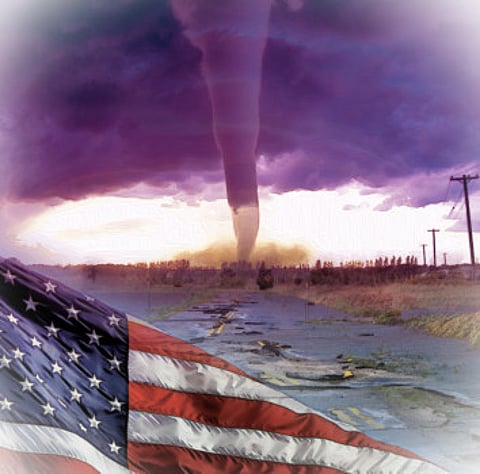America in for a bumpy ride
Trump’s racist rhetoric has antecedents that can be traced to populist leaders from Western Europe, whose own gloss on ‘the other’ continues to resonate with and haunt the American imagination

Late into election night, as Donald Trump inched inexorably closer to clinching the 270 electoral votes he needed to secure the presidency of the United States — people could not remember how late it was, numbed as they were by the shock and awe of what was happening — Hillary Clinton’s campaign manager, John Podesta, told supporters of the Democratic nominee gathered at her headquarters in New York, “Head home and get some sleep”. The plaintiveness in his voice was unmistakable.
It is doubtful that those supporters, along with millions of other Americans who had been watching the election results on their television screens since early evening, got any sleep. But those who did, woke up the following day to discover that they lived in a different country, a country split in two, ripped apart by race, gender, religion and ethnicity, its long-held social values now supplanted by a xenophobic, even paranoid, view of ‘the other’.
It was a dark day not just for America but, given America’s pivotal role in the global dialogue of cultures, for the world at large — and certainly a dark day for our part of it, where this vulgarian and clueless blockhead is expected to quickly fulfil his campaign promise to overthrow decades of US foreign policy by recognising occupied Jerusalem as Israel’s capital, signal the end of the two-state solution and take a benign approach to Israel’s relentless colonisation in the Occupied Territories. The fist will close ever tighter on Palestine and the Palestinians after Newt Gingrich, who has repeatedly claimed that the Palestinian people’s national identity is “fabricated”, is chosen by Trump, as already appears likely, to be the next US secretary of state.
The long and short of it is that the country that Americans, along with their parents and grandparents, have known all these years, is now grotesquely transformed. And where that transformation will take the US — soon to be led by a head-of-state who lacks any serious claim to literacy, surrounded by aides who have given open, even ecstatic welcome to xenophobic bestiality — is anyone’s guess. But we know from history that in culture, no less than in politics, chauvinism and bigotry are suicidal options.
Snowdrift of bigotry
What were the factors, then, that seem to have cut so deep into the reserves of feeling and imaginative response in American society that millions upon millions of Americans — and not all of them adorned with tattoos — continued gravitating towards Trump, even as his snowdrift of bigotry kept thickening into a blizzard?
The answer may be found in a line in the acceptance speech that he delivered to his supporters less than half an hour after Clinton called him around 2.30am (local time) in the morning to concede defeat. “Ours was not a campaign but rather an incredible and great movement made up of millions of hardworking men and women who love their country ...”
The man is right, except Americans did not launch, so much as join — albeit belatedly — this movement, a populist revolt that began to brew in the Euro-American world beginning in the late 1960s and early 1970s, spearheaded in Britain by the likes of Enock Powell, the Conservative member of parliament, notorious for his “rivers of blood” speech in 1968, in which he vehemently criticised immigration into Britain from Commonwealth nations and opposed the anti-discrimination legislation mooted at the time. After that, several polls suggested that between 67 and 82 per cent of the UK population agreed with him. Likewise, in France, Jean-Marie Le Pen, leader of the National Front, advocated Euroscepticism and restrictions on immigration.
Not less an influential figure was Joerg Haider, the far-right populist leader of the Austria Free Party who, like Trump, used simple but brazenly Islamophobic slogans to denigrate Muslims and who at one time proclaimed: “The social order of Islam is opposed to our western values. Human rights and democracy are as incompatible with the Muslim religious doctrine as is equality of women in Islam. In Islam, the individual and his free will count for nothing”. (Haider died in a car crash in October 2008 at the age of 58.)
Thus, the conceit of Trump’s racist rhetoric has antecedents that could be traced to these and other populist leaders from Western Europe, whose own gloss on ‘the other’ continues this day to resonate with and haunt the American imagination. Bigoted rhetoric has great reserves of life and can absorb a mass of hysteria and illiteracy, enabling it, with facile ease, to reduce the humanity of others to a fragment. Behind it all is white anxiety, which has engendered the emergence of “the angry white man” who, hitherto forgotten, is now, as Trump put it in his acceptance speech, “forgotten no more”. The anger has just travelled across the Atlantic.
With Donald Trump as the next president of the US, we are all, folks, in for a rough ride.
Fawaz Turki is a journalist, lecturer and author based in Washington. He is the author of The Disinherited: Journal of a Palestinian Exile.



